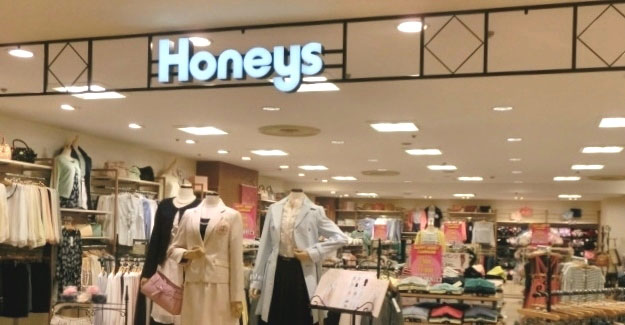
Myanmar Garment Industry Draws Fresh Investment From Japan's Honeys
Fast-fashion chain aims to source over half of products from Southeast Asian nation. Japanese apparel maker Honeys Holdings breaks ground on a third factory in Myanmar this month, aiming to make over half of its products in the low-cost Southeast Asian manufacturing hub. The 16,000-square-metre plant will sit alongside one of the company's existing workshops in Mingaladon Industrial Park outside Yangon. Honeys plans to invest about 1.5 billion yen (US$ 11.3 million) in the project over the two fiscal years through May 2024. The women's fast-fashion chain sources roughly 90% of its products from Southeast Asia, and 44% from Myanmar alone. "We can manufacture at our factories in Myanmar cheaper than anywhere else," President Eisuke Ejiri said. "This is our biggest strength." Honeys said its Myanmar business has kept running since the February 2021 military takeover in the country. This contrasts with the withdrawals of companies that operated in Myanmar through joint ventures with military-linked businesses, such as Japanese brewer Kirin Holdings. "Our company has no relationship with the military, and we contribute to the community by retaining and adding jobs," Honeys Chairman Yoshihisa Ejiri said. Honeys employs over 4,000 workers at its production sites in Myanmar. Western and other multinationals are rethinking relationships with businesses suspected of involvement in human rights abuses. Honeys says it undergoes screenings by international certification firm SGS Group. The audits check factories for abuses like child labour, forced labour and discrimination, as well as for the health and safety of workers and the freedom of association. "We've been told there are no problems," said Eisuke Ejiri, the president. The new plant will employ around 1,500 workers and have a capacity of 100,000 items per month, mainly coats and outerwear. All output will be exported to Japan, where Honeys operated 871 stores as of the end of May. Materials such as fabric and buttons will be brought in from China. Honeys took a hit from the coronavirus pandemic. Many of its stores are in malls where coronavirus-related restrictions curtailed foot traffic. But customers returned after these curbs were lifted in March, Eisuke Ejiri said. The company logged a 5% increase in sales in the year ended in May. Honeys has issued a business plan through May 2025 that anticipates a post-Covid era. The company projects 55 billion yen in sales for that financial year, up about 15% from the year completed this May. Operating profit is expected to grow 20% to 6 billion yen. The group decided that a larger production presence in Myanmar is essential to achieve those targets.
Textile Excellence
If you wish to Subscribe to Textile Excellence Print Edition, kindly fill in the below form and we shall get back to you with details.













